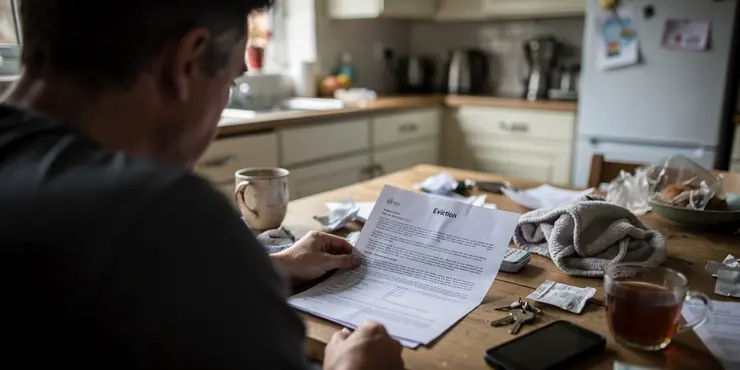
Find Help
More Items From Ergsy search
-
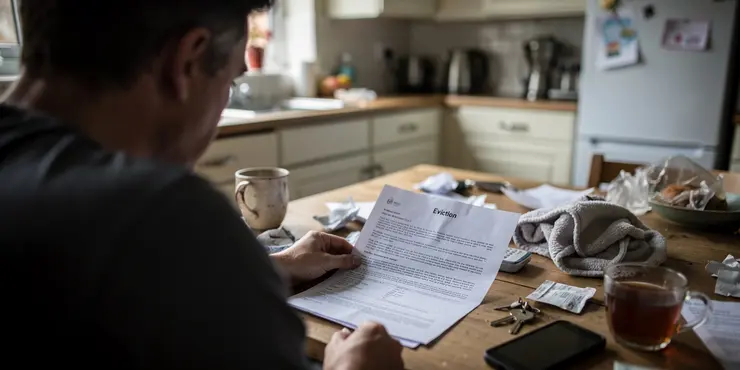
Does filing for bankruptcy stop an eviction?
Relevance: 100%
-
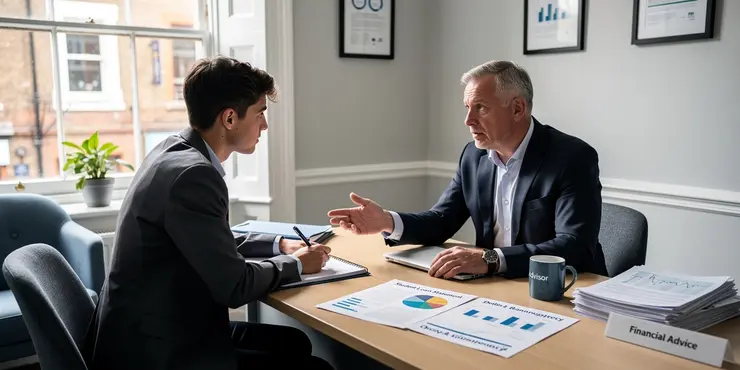
Is bankruptcy an option for student loan discharge?
Relevance: 45%
-
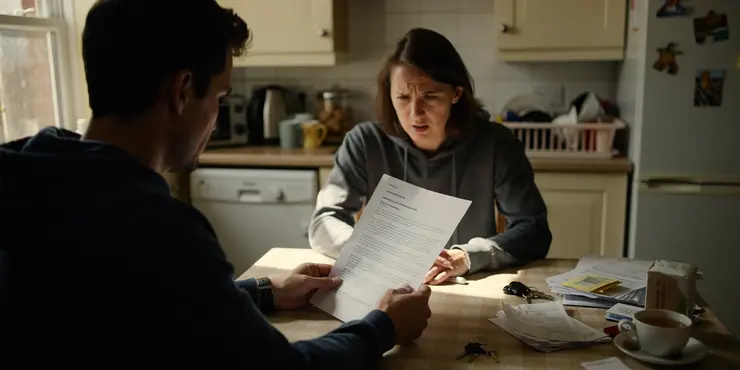
What can I do if my landlord wants to evict me?
Relevance: 44%
-
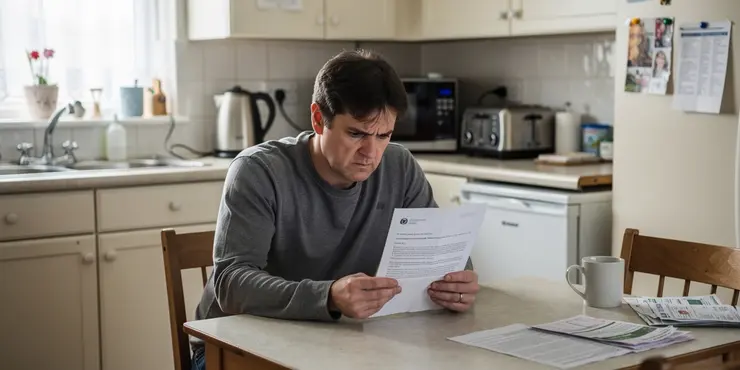
What can I do if I believe my eviction is retaliatory?
Relevance: 40%
-
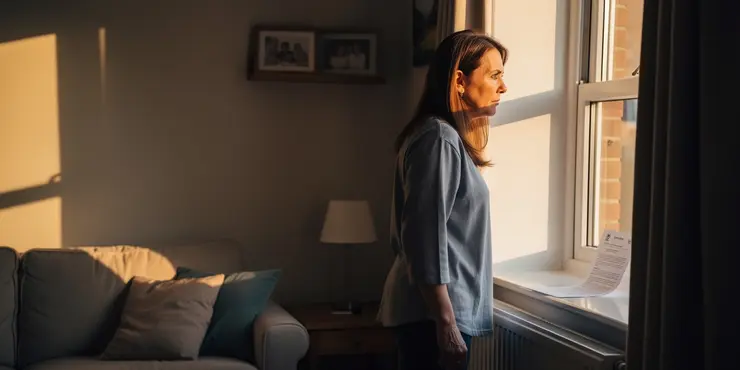
Can I appeal a court's eviction decision?
Relevance: 40%
-
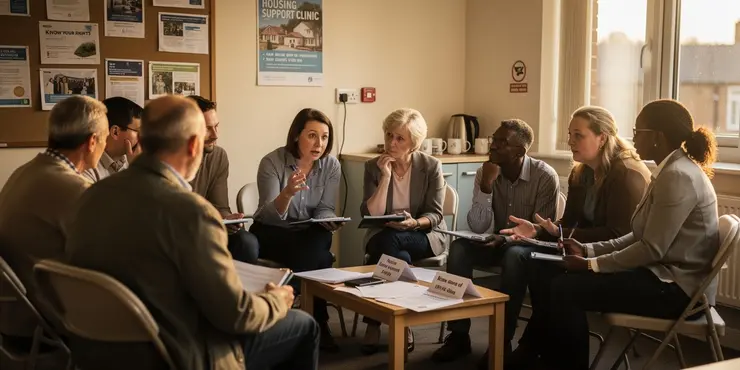
Are there changes to the eviction process?
Relevance: 39%
-
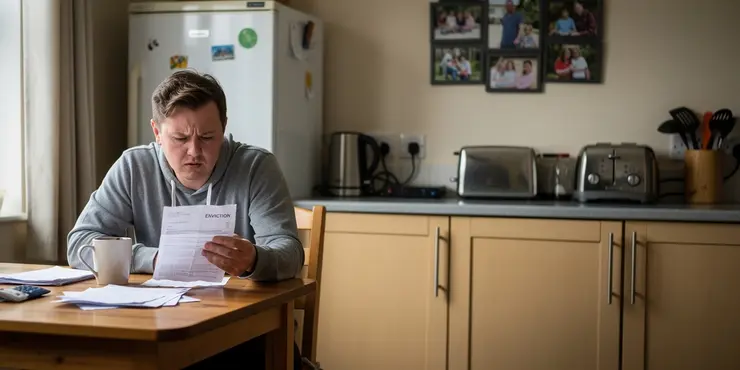
How can I contest or challenge the eviction?
Relevance: 38%
-

Can eviction affect my credit score?
Relevance: 38%
-
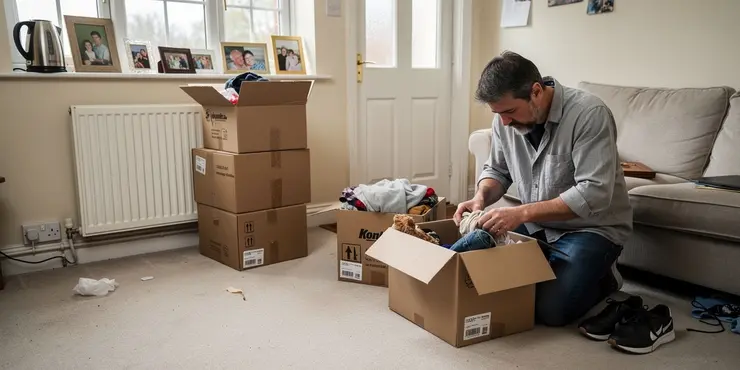
What happens if I stay beyond the eviction deadline?
Relevance: 37%
-
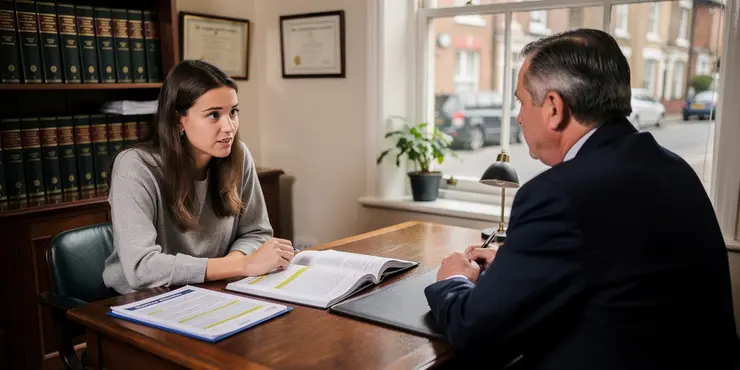
What are the consequences of having an eviction on my record?
Relevance: 36%
-
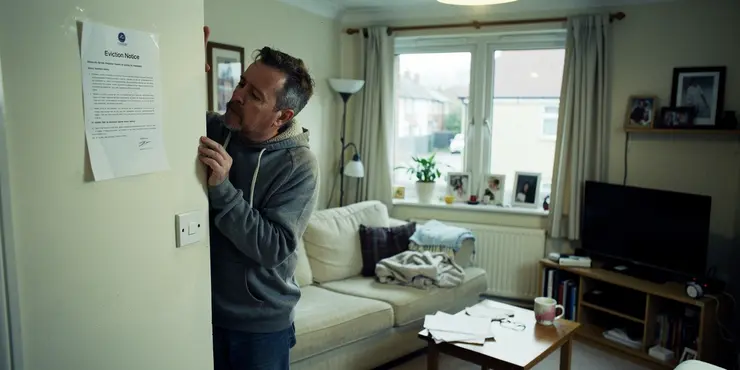
What are my rights during the eviction process?
Relevance: 36%
-
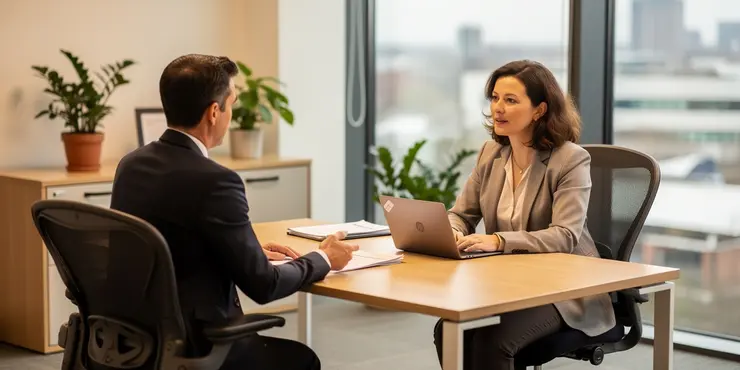
www.DebtMadeSimple.co.uk - Trust Deeds, Debt Arrangement Schemes, and Bankruptcy Services
Relevance: 36%
-
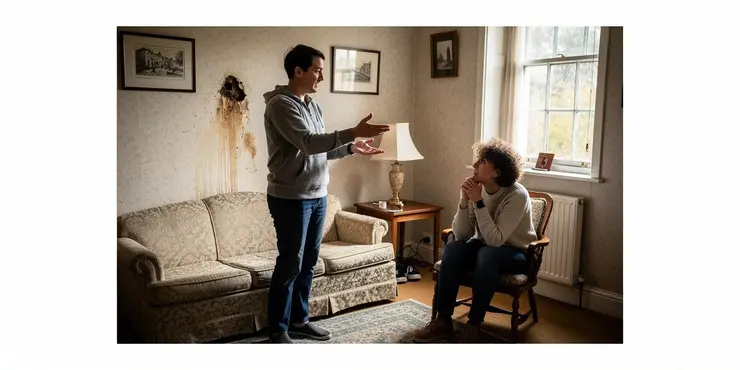
Can a landlord evict me for complaining about property conditions?
Relevance: 35%
-
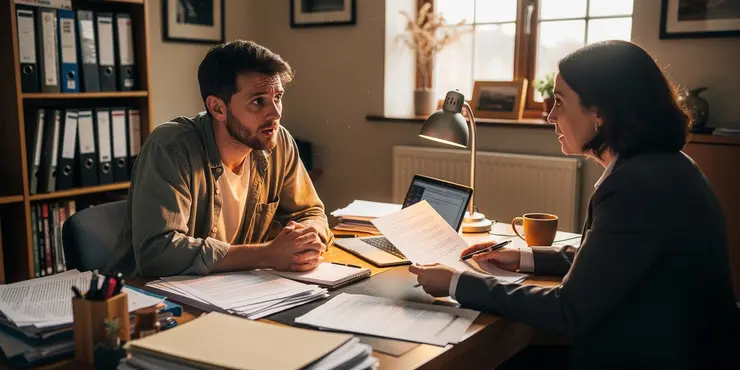
Can a landlord lock me out or remove my belongings to evict me?
Relevance: 35%
-
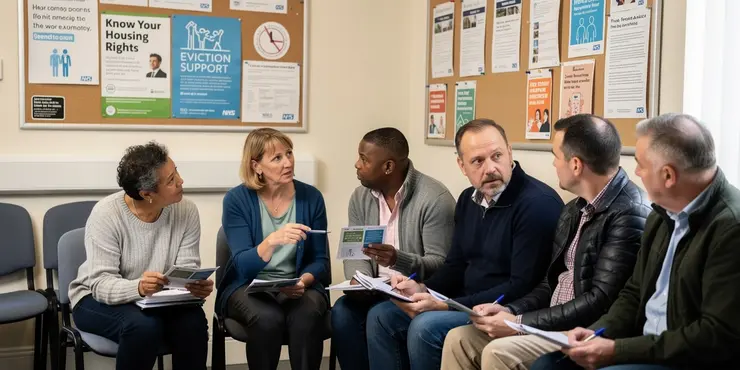
Can I stop an eviction if I catch up on rent payments?
Relevance: 35%
-
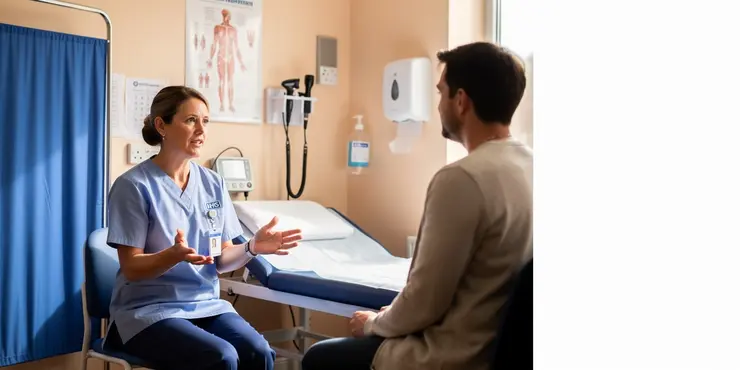
Has the notice period for eviction changed?
Relevance: 35%
-
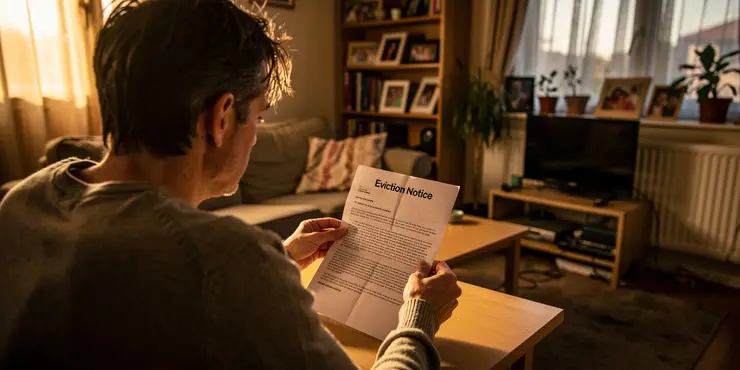
What should I do if I receive an eviction notice from my landlord?
Relevance: 35%
-
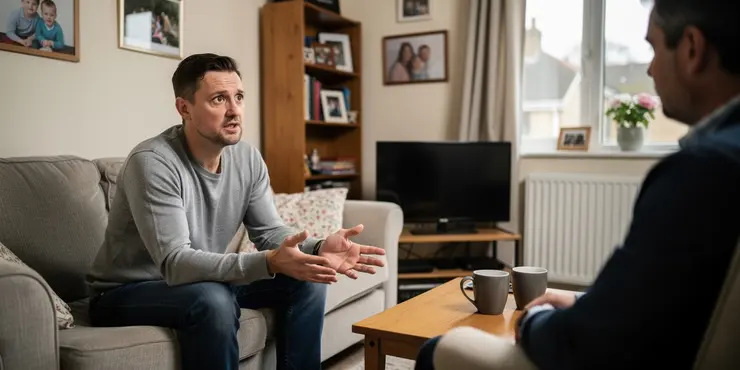
Can I negotiate with my landlord to avoid eviction?
Relevance: 34%
-
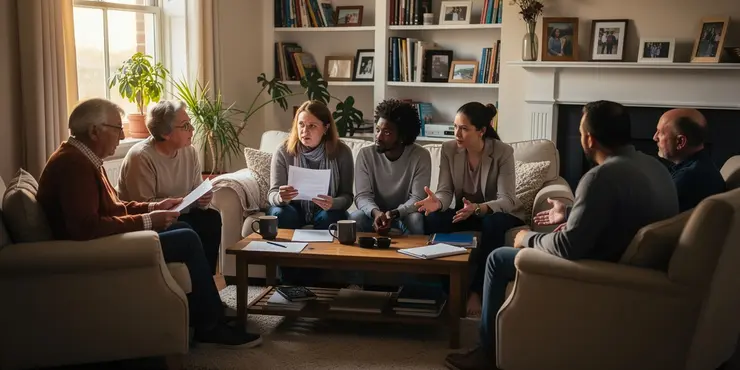
Can my landlord evict me without providing a reason?
Relevance: 33%
-
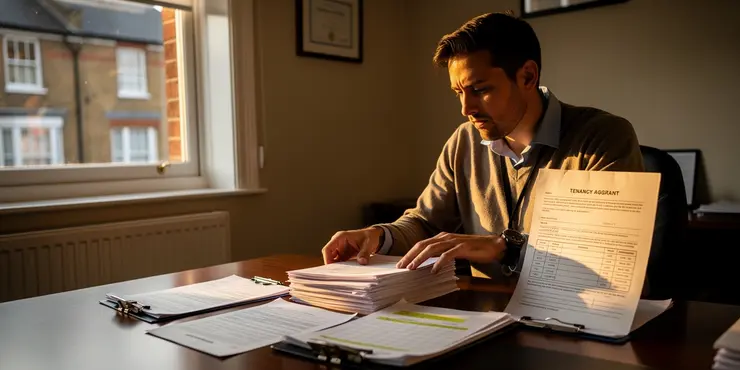
How can I prepare for an eviction court hearing?
Relevance: 33%
-
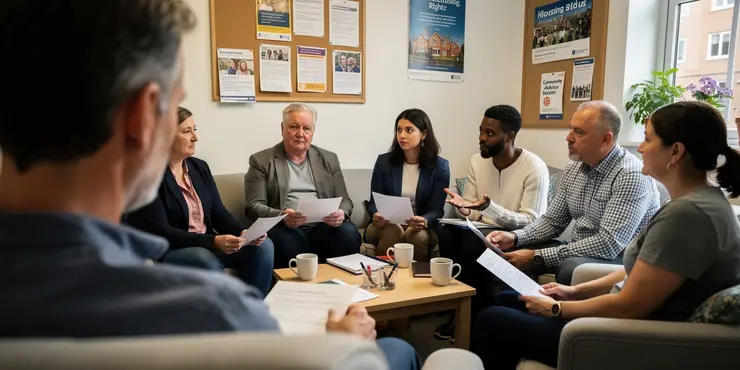
How long do I have to move out after receiving an eviction notice?
Relevance: 33%
-
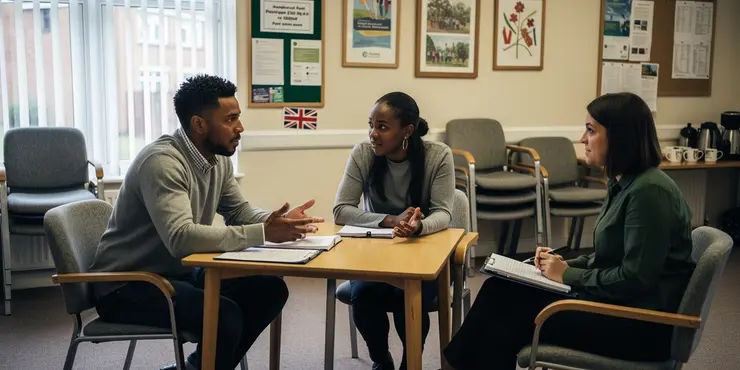
Is mediation an option to resolve eviction disputes?
Relevance: 32%
-
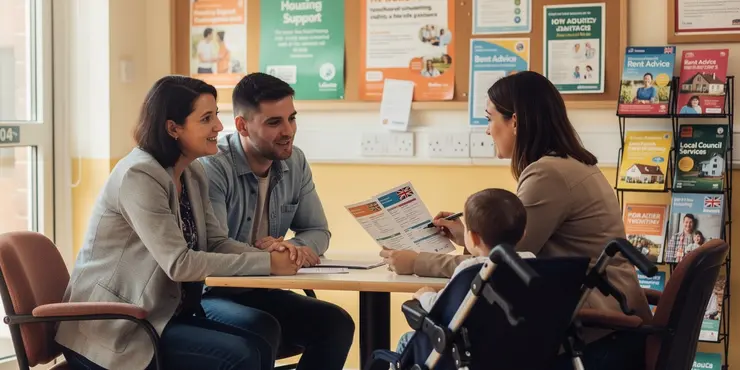
Are there any government programs that can help me avoid eviction?
Relevance: 31%
-
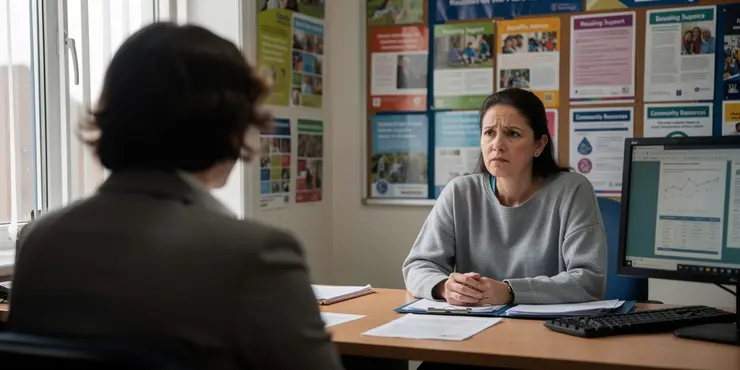
What should I do if I can't afford a lawyer for the eviction process?
Relevance: 31%
-
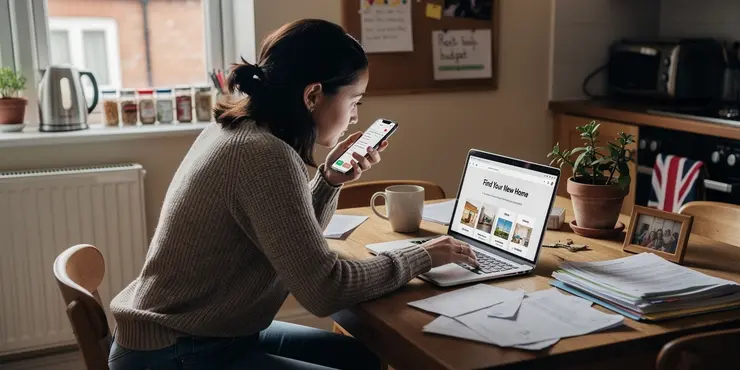
How do I find alternative housing quickly if evicted?
Relevance: 30%
-
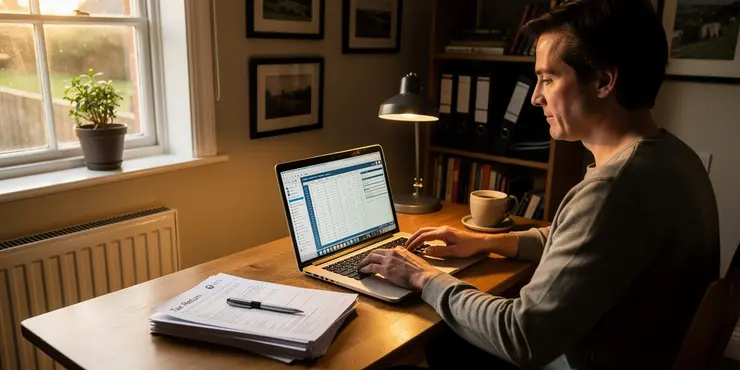
Is it safe to file taxes online?
Relevance: 26%
-
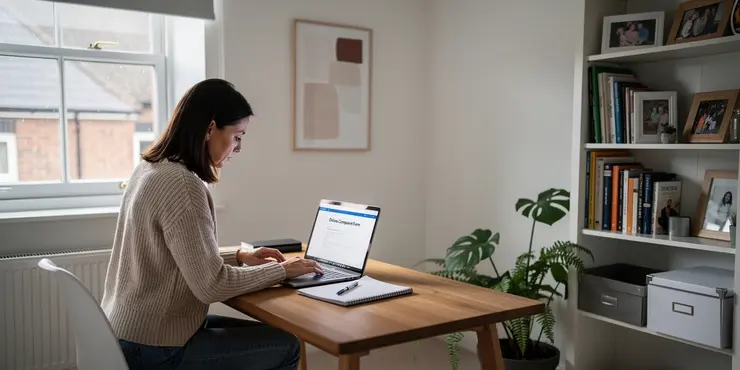
Is it effective to file a complaint online?
Relevance: 26%
-
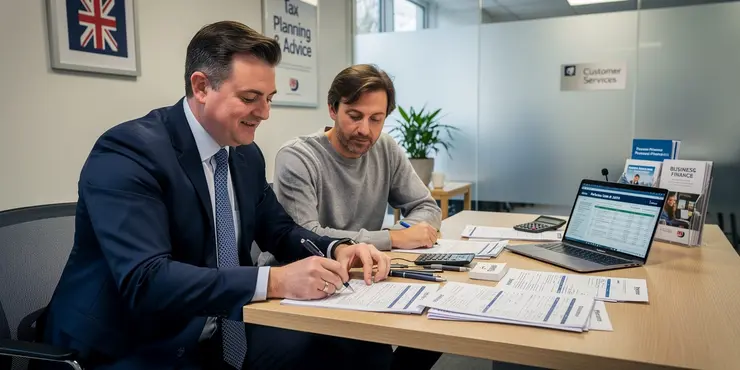
When is the deadline to file taxes online?
Relevance: 26%
-
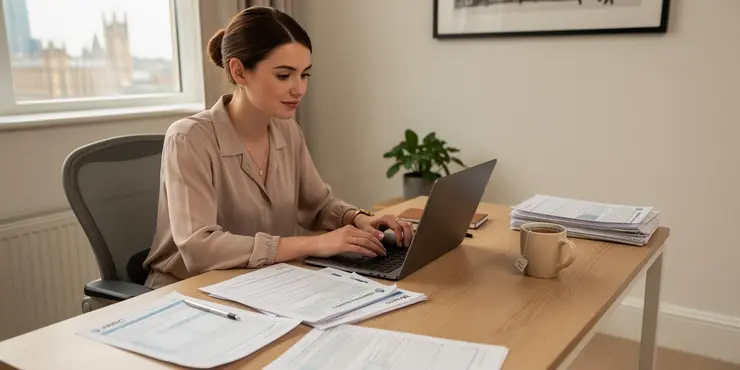
Are there free options for filing taxes online?
Relevance: 26%
-
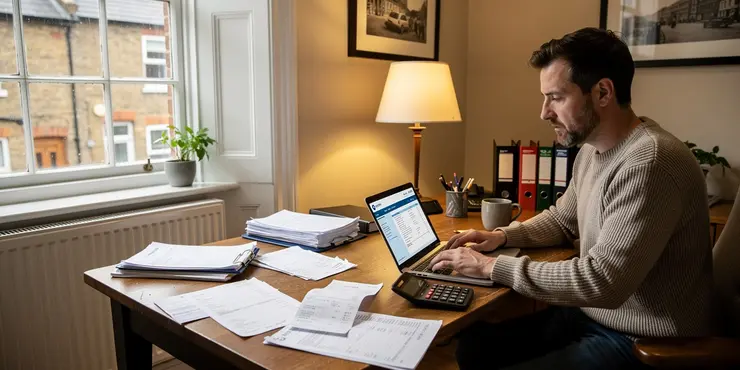
Can I file my taxes online if I'm self-employed?
Relevance: 25%
-

Will I get a confirmation when I file online?
Relevance: 25%
-
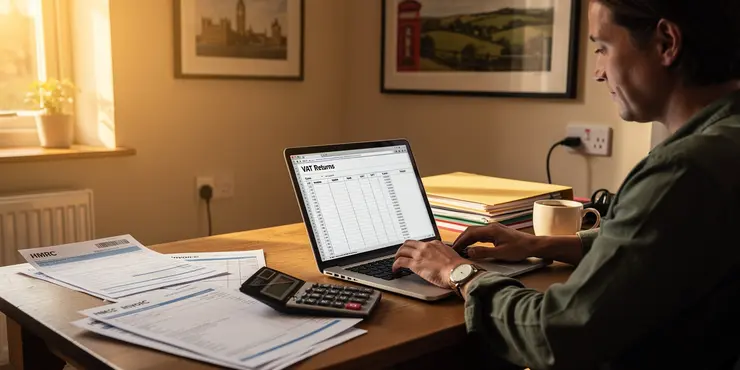
How do I file VAT returns?
Relevance: 25%
-
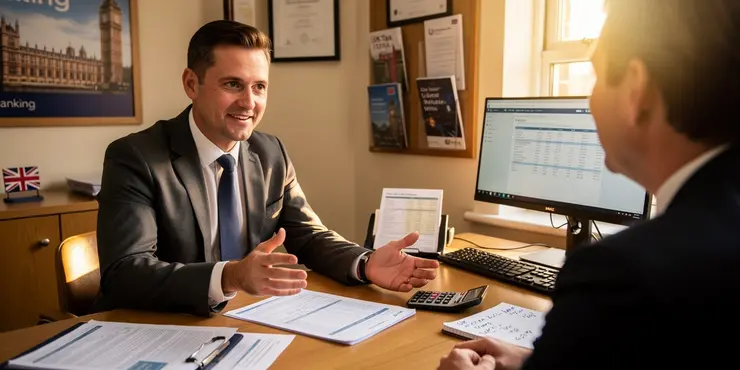
Can I file my state taxes online as well?
Relevance: 25%
-

Is filing a formal complaint a good step?
Relevance: 25%
-
Can I file taxes online after the deadline?
Relevance: 25%
-
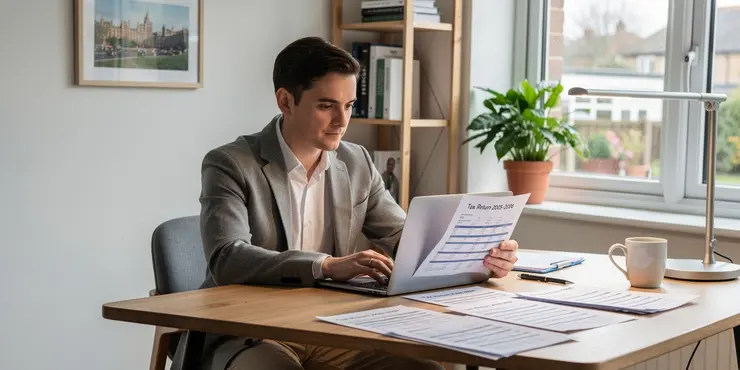
How do I start filing my taxes online?
Relevance: 24%
-
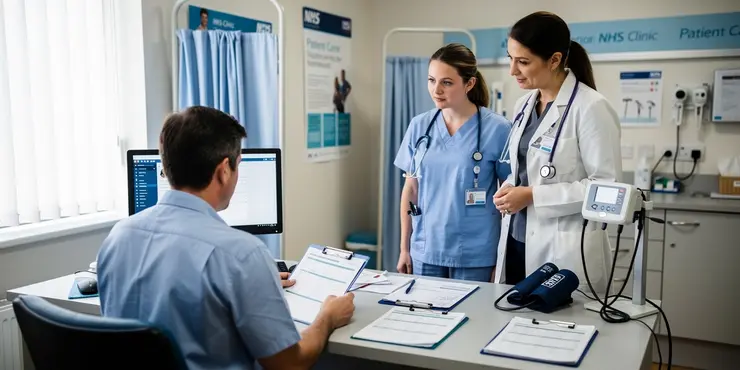
What is the deadline for filing a tribunal application?
Relevance: 24%
-
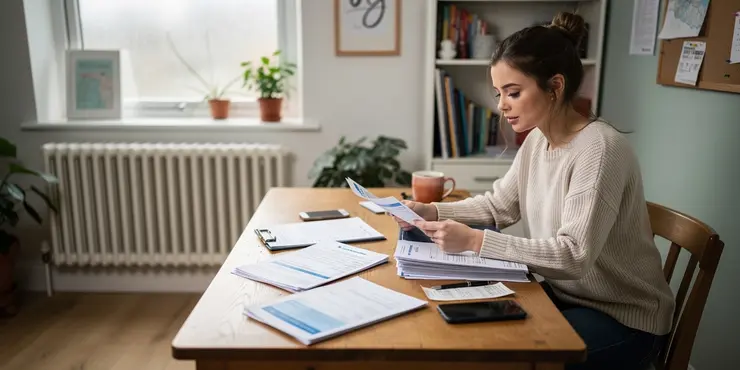
How do I file a claim with travel insurance?
Relevance: 23%
-
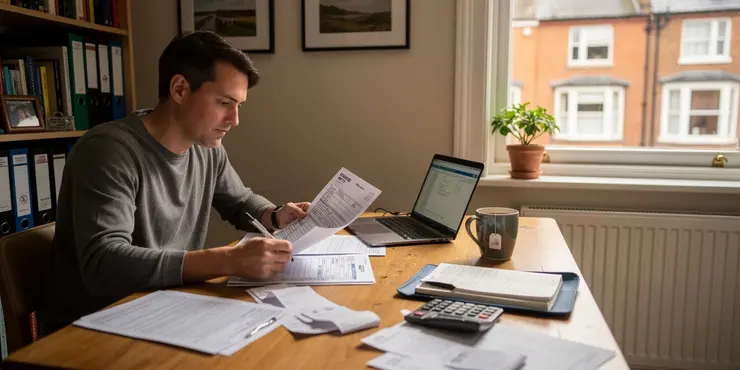
Who needs to file a Self Assessment tax return?
Relevance: 23%
-
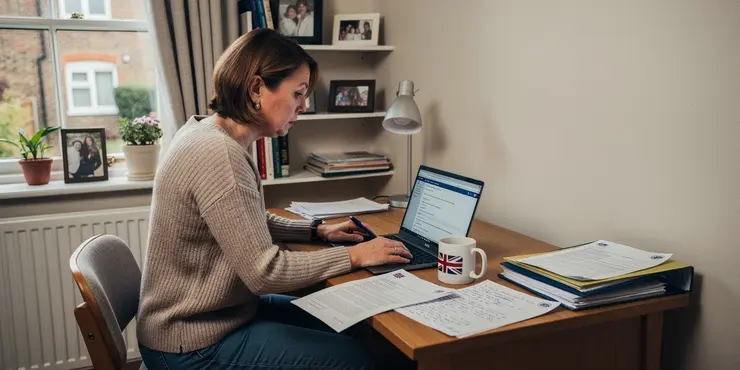
Do I need to send anything by post when filing online?
Relevance: 23%
Understanding Bankruptcy and Eviction in the UK
In the UK, bankruptcy is a legal status that occurs when an individual cannot repay their outstanding debts. While it provides a fresh start by wiping away most debts, it does not necessarily protect against all legal actions, such as eviction. It's crucial for tenants facing eviction while contemplating bankruptcy to grasp how the process may impact their housing situation.
The Process of Filing for Bankruptcy
Filing for bankruptcy in the UK involves submitting a petition to the Insolvency Service, which can be done online or via a paper form. Once bankruptcy is declared, an Official Receiver or an Insolvency Practitioner takes control of the individual's financial affairs. This process is primarily aimed at debt relief and repayment structuring, providing the debtor with a means to manage their financial predicament legally.
Eviction Process in the UK
The eviction process in the UK generally requires landlords to follow legal procedures, including obtaining a court order. Eviction notices like Section 8 and Section 21 are commonly used in housing disputes. A Section 21 notice allows for possession without the landlord giving a reason, while a Section 8 notice is often used when the tenant has breached the terms of the tenancy agreement, such as failing to pay rent.
Impact of Bankruptcy on Eviction
Filing for bankruptcy does not inherently halt eviction proceedings in the UK. Unlike in some jurisdictions, UK bankruptcy does not automatically freeze eviction actions unless specifically ordered by a court. Landlords with a valid possession order can proceed with eviction after bankruptcy is declared. Tenants should be aware that rent arrears prior to the bankruptcy filing are included in the bankruptcy process, but this does not prevent eviction based on those arrears if a landlord has already initiated legal proceedings.
Secured and Unsecured Debts
In the context of bankruptcy, rent arrears are deemed unsecured debts, which means they are included in the bankruptcy order. However, eviction is a separate legal matter. Even if unpaid rent is written off through bankruptcy, it does not negate the landlord's right to reclaim possession of the property. Conversely, if the landlord holds a mortgage or other security interest over the property, this is considered a secured debt, which bankruptcy does not affect.
Advice and Support
Facing eviction can be distressing, and those experiencing financial difficulty should seek advice from legal or debt counselling services. Organizations such as Citizens Advice, Shelter, and debt charities like StepChange provide guidance on dealing with both bankruptcy and eviction. It's recommended to obtain professional advice tailored to individual circumstances as responses to eviction notices and bankruptcy alternatives can vary based on specific legal contexts.
Conclusion
In conclusion, while bankruptcy provides a means to manage overwhelming debts in the UK, it does not automatically stop the eviction process. Tenants at risk of eviction must address both their financial and housing issues separately, ensuring they take appropriate legal actions and seek expert advice where necessary.
Understanding Bankruptcy and Eviction in the UK
In the UK, if you cannot pay your debts, you might declare bankruptcy. Bankruptcy means you get a chance to start over, and many debts are erased. But, it does not stop all actions, like being evicted from your home. If you are a tenant and worried about being evicted while thinking about bankruptcy, it’s important to understand how this might affect your home situation.
The Process of Filing for Bankruptcy
To file for bankruptcy in the UK, you fill out a form online or on paper and send it to the Insolvency Service. Once you declare bankruptcy, an Official Receiver or Insolvency Practitioner will help manage your money. This process helps you deal with your debts in a legal way.
Eviction Process in the UK
In the UK, landlords must follow the law to evict you. They need a court order to do it. Landlords often use Section 8 or Section 21 notices. A Section 21 notice means they want you to leave without giving a reason. A Section 8 notice is used if you have broken the rules of your rental agreement, like not paying rent.
Impact of Bankruptcy on Eviction
Declaring bankruptcy in the UK does not stop eviction by itself. Your landlord can still try to evict you even if you are bankrupt. If your landlord already started legal eviction steps before you declared bankruptcy, they can continue after. Any rent you didn’t pay before bankruptcy is considered by the bankruptcy, but your landlord can still evict you for these unpaid rents if they have a court order.
Secured and Unsecured Debts
In bankruptcy, unpaid rent is called unsecured debt, which means it gets included in the bankruptcy order. However, eviction is a separate issue. Even if your unpaid rent is erased, the landlord can still ask you to leave the property. But, if there’s a mortgage on your home, it’s a secured debt and not affected by bankruptcy.
Advice and Support
If you are worried about eviction, it is important to get help. You can talk to legal or debt help services. Groups like Citizens Advice, Shelter, and charities like StepChange can give you advice about bankruptcy and eviction. Get advice that fits your situation because dealing with eviction and bankruptcy can be different for each person.
Conclusion
In summary, bankruptcy in the UK helps with debts, but it does not stop eviction automatically. Tenants facing eviction should deal with both money and housing problems separately. It is important to take the right legal steps and ask for expert advice if needed.
Frequently Asked Questions
What is bankruptcy?
Bankruptcy is a legal process that provides relief to individuals or businesses that are unable to pay their debts.
Can filing for bankruptcy stop an eviction?
Filing for bankruptcy may temporarily stop an eviction due to the automatic stay, but it depends on the circumstances of the eviction.
What is an automatic stay in bankruptcy?
An automatic stay is a legal provision that immediately stops most collection actions, including evictions, once a bankruptcy case is filed.
Does the automatic stay apply to all eviction cases?
No, the automatic stay may not apply if the landlord has already obtained a judgment for possession or if the eviction is due to illegal activity.
How long does the automatic stay last?
The automatic stay lasts for the duration of the bankruptcy proceedings unless the court grants a motion for relief from the stay.
Can a landlord challenge the automatic stay?
Yes, a landlord can file a motion for relief from the automatic stay to continue with eviction proceedings.
What happens if a landlord gets a relief from the automatic stay?
If a landlord gets relief from the automatic stay, they can proceed with the eviction process.
Does bankruptcy discharge rent arrears?
Bankruptcy can discharge certain debts, but rent arrears are usually not discharged in Chapter 7 bankruptcy.
Can filing for Chapter 13 bankruptcy help with eviction?
Filing for Chapter 13 bankruptcy might help stop eviction by allowing you to include rent arrears in your repayment plan.
Are there risks to filing bankruptcy to stop an eviction?
Yes, bankruptcy can have long-term effects on your credit and does not guarantee eviction prevention.
What should I do before filing bankruptcy to stop an eviction?
It is important to consult with a bankruptcy attorney to understand your rights and options.
Can eviction for illegal substances use be stopped by bankruptcy?
No, evictions based on illegal drug use or endangerment are not protected by the automatic stay.
How does state law affect eviction and bankruptcy?
State laws can vary, affecting how bankruptcy impacts eviction, so it’s essential to consult with legal counsel.
Can I include my current rent in a Chapter 13 repayment plan?
Chapter 13 repayment plans can include past rent arrears but typically don't cover ongoing rent obligations.
What is the role of the bankruptcy trustee in eviction cases?
A bankruptcy trustee oversees your case but does not directly intervene in eviction matters.
What are the alternatives to bankruptcy for avoiding eviction?
Alternatives include negotiating with your landlord, seeking rental assistance programs, or exploring payment arrangements.
Does filing for bankruptcy affect my ability to rent in the future?
Filing bankruptcy can affect your credit score and rental history, which may impact your ability to rent in the future.
What documentation is needed to file bankruptcy?
You will need to provide financial documentation, including assets, debts, income, and expenses.
Can bankruptcy affect other housing-related debts?
Bankruptcy can potentially discharge other unsecured debts related to housing, such as utility bills.
How long does a bankruptcy filing stay on my credit report?
A Chapter 7 bankruptcy can stay on your credit report for up to 10 years, while a Chapter 13 can stay for up to 7 years.
What is bankruptcy?
Bankruptcy is when a person or a business cannot pay the money they owe. They might need help from the court to sort out their money problems.
If someone goes bankrupt, they may need help to pay back some of the money they owe. Sometimes they don't have to pay back all the money.
Tools and tips to help understand:
- Ask a friend or family member to explain it in their own words.
- Use drawings or simple charts to see how money comes in and goes out.
- Listen to a story or watch a video about someone who went through bankruptcy.
Bankruptcy is a way the law can help people or businesses that cannot pay back the money they owe.
Will going bankrupt stop you from losing your home?
When you file for bankruptcy, it might pause an eviction for a short time. This is called an automatic stay, but it may not work in every eviction situation.
What happens with money problems when you ask for help?
An automatic stay is a rule that helps people. When someone asks for bankruptcy, it makes most actions to collect debts stop right away. This includes stopping evictions.
Does the Automatic Pause Stop All Evictions?
When someone can't pay rent and might lose their home, there is a rule called the "Automatic Pause." This rule can sometimes stop evictions.
Here are some things that might help you understand:
- Automatic Pause means stopping something from happening right away.
- Eviction means being told to leave your home because you didn't pay rent.
Not all eviction cases are stopped by the Automatic Pause. It depends on the situation. Here are some tips to help:
- Talk to someone who knows about housing rights, like a helper or advisor.
- Look for information that is easy to understand.
- Ask for help if you are confused.
Remember, it’s okay to ask questions and get support.
No, the automatic stop might not work if the landlord already has a court order saying you have to leave your home, or if the eviction is because of something against the law.
How long does the automatic stop last?
The automatic stop lasts for a while. It might be different for each person.
If you need more help, you can ask a friend or use a picture chart. Talking to someone who knows about these things can also help.
The automatic stop lasts while the bankruptcy case is happening. But, it can end early if the court says it's okay.
Can a landlord ask to stop the automatic stay?
Yes, a landlord can ask the court to let them keep going with an eviction, even if there is a rule stopping them for now.
What happens if a landlord gets permission to act?
If a landlord gets permission, they can do some things they couldn't do before.
Here is what it means:
- The landlord might be allowed to ask you to leave.
- The landlord can talk to you about rent or other problems.
If you need help, you can:
- Talk to someone who can explain what is happening.
- Use a dictionary to understand hard words.
- Ask a friend to help you read.
If a landlord gets allowed by a court to go forward, they can start the process to make a tenant move out.
Does Bankruptcy Wipe Away Unpaid Rent?
What is Bankruptcy?
Bankruptcy is when someone can't pay their debts. They ask the court for help.
What Are Rent Arrears?
Rent arrears means you owe money because you haven't paid your rent.
What Happens When You Go Bankrupt?
When you go bankrupt, some debts may go away.
Does Bankruptcy Clear Rent Arrears?
Sometimes, yes. Filing for bankruptcy can help do this.
What Can Help with Learning More?
- Ask a grown-up to help understand this.
- Use a dictionary for hard words.
- Listen to an audio version if reading is hard.
Bankruptcy can help get rid of some debts. But money owed for rent usually isn't wiped away when you use Chapter 7 bankruptcy.
Can Chapter 13 bankruptcy stop me from losing my home?
Chapter 13 bankruptcy is about managing money when you have debts. It can help stop eviction by letting you pay back missed rent in a plan. This plan helps you catch up on what you owe.
Is it risky to use bankruptcy to stop being evicted?
Yes, if you declare bankruptcy, it can harm your credit for a long time, and it won't always stop you from being evicted.
What can I do to stop being kicked out before going bankrupt?
If you are worried about being kicked out of your home and are thinking about going bankrupt, here are some steps you can take:
1. Talk to your landlord: Tell them about your money problems. They might have a way to help you.
2. Ask for help: Contact someone who helps with money worries. They can give you advice.
3. Get your papers ready: Make sure you have all the important letters and documents.
4. Know the rules: Learn what can happen if you do go bankrupt and how it affects you.
5. Think carefully: Talk to a friendly expert about what is best for you to do next.
Tools to help: Use a calendar to keep track of important dates. A checklist can help you remember what to do.
It is good to talk to a lawyer about bankruptcy. They can help you know what you can do and what your choices are.
Can filing for bankruptcy stop an eviction for using illegal drugs?
No, if someone is being removed from their home for using illegal drugs or being dangerous, the automatic rule that stops evictions does not protect them.
How do state rules change eviction and money problems?
Sometimes people have to leave their homes when they can't pay rent. This is called eviction. Each state has different rules about eviction. It's important to know these rules so you can understand how they might affect you.
When people have a lot of money problems, they might say they can't pay their bills. This is called bankruptcy. State rules can also change how bankruptcy works.
Remember, each state is different, so it's good to ask for help. You can talk to a lawyer or a helper who knows about these rules.
To make it easier, you can:
- Ask someone to explain words you don't understand.
- Use pictures or drawings to help you see the ideas.
- Look for books or websites that use simple words.
Different places have different rules. These rules can change how bankruptcy affects eviction. It’s important to talk to a lawyer to understand what could happen.
Can I add my rent to a Chapter 13 plan?
Chapter 13 plans can help pay back old rent. But you still need to pay your new rent every month.
What does a bankruptcy trustee do in eviction cases?
A bankruptcy trustee helps manage money problems when someone goes bankrupt.
In eviction cases, the trustee:
- Looks at what a person owns and owes.
- Helps decide if the person can keep their home.
- Works with the courts to make sure everyone is treated fairly.
If you need help, ask a family member or friend to explain. They can also help you find online videos or books about bankruptcy and evictions.
A bankruptcy helper takes care of your case, but they do not help with getting you out of a home.
Other Ways to Avoid Losing Your Home
If you are worried about losing your home because you owe money, there are things you can do instead of saying you cannot pay (this is called bankruptcy). Here are some ideas:
- Talk to Your Landlord: Try to explain your situation. They may let you pay your rent late or in smaller amounts.
- Ask for Help: Some groups or charities can give you money or advice to help pay your rent.
- Make a Budget: Write down what money you get and what money you spend. This can help you see where to save money for rent.
- Get Advice: Talk to someone who knows about money problems. They can give you more ideas to help with rent.
These steps can help you keep your home and not worry about eviction. Remember to ask for help if you need it.
Here are some ways to get help:
- Talk to your landlord and try to make a new deal.
- Look for programs that help pay rent.
- See if you can make a payment plan.
Will going bankrupt make renting a home harder later?
Filing for bankruptcy can change your credit score. This might make renting a home harder in the future.
What papers do you need to show when you ask for bankruptcy?
When you want to ask for bankruptcy, you need to show some papers. This is so the people in charge can understand your money situation.
Here are the papers you might need:
- Pay stubs: The papers that show how much money you make from your job.
- Bank statements: Papers from the bank that show how much money you have and spend.
- Bills: Papers that show what you owe, like credit card bills.
- Tax returns: Papers you fill out every year to tell the government about your money.
Ask someone you trust to help you collect these papers. You can also use simple apps to keep your papers organized.
You need to share some money information. This includes what you own, what you owe, the money you make, and the money you spend.
Does going bankrupt change other money you owe for your home?
Bankruptcy might help you get rid of other debts that are not backed by anything, like money owed for gas, electricity, and water bills.
How long will a bankruptcy show on my credit report?
Filing for bankruptcy means you have trouble paying your debts. This will stay on your credit report for a while.
Usually, a bankruptcy stays on your report for 10 years. This is a long time, but there are things you can do to help.
Here are some tips to make things better:
- Check your credit report often. Make sure everything is correct.
- Pay your bills on time. This helps your credit look better.
- Be careful with new credit cards. Use them wisely.
If you need help, ask someone you trust or a money advisor. They can support you with your finances.
A Chapter 7 bankruptcy can stay on your credit report for 10 years. A Chapter 13 can stay for 7 years.
Here are some tools that might help:
- Use a calendar to track the time.
- Set reminders on your phone.
- Ask a family member or friend to help you remember.
Useful Links
This website offers general information and is not a substitute for professional advice.
Always seek guidance from qualified professionals.
If you have any medical concerns or need urgent help, contact a healthcare professional or emergency services immediately.
Some of this content was generated with AI assistance. We’ve done our best to keep it accurate, helpful, and human-friendly.
- Ergsy carfully checks the information in the videos we provide here.
- Videos shown by Youtube after a video has completed, have NOT been reviewed by ERGSY.
- To view, click the arrow in centre of video.
- Most of the videos you find here will have subtitles and/or closed captions available.
- You may need to turn these on, and choose your preferred language.
- Go to the video you'd like to watch.
- If closed captions (CC) are available, settings will be visible on the bottom right of the video player.
- To turn on Captions, click settings .
- To turn off Captions, click settings again.
More Items From Ergsy search
-

Does filing for bankruptcy stop an eviction?
Relevance: 100%
-

Is bankruptcy an option for student loan discharge?
Relevance: 45%
-

What can I do if my landlord wants to evict me?
Relevance: 44%
-

What can I do if I believe my eviction is retaliatory?
Relevance: 40%
-

Can I appeal a court's eviction decision?
Relevance: 40%
-

Are there changes to the eviction process?
Relevance: 39%
-

How can I contest or challenge the eviction?
Relevance: 38%
-

Can eviction affect my credit score?
Relevance: 38%
-

What happens if I stay beyond the eviction deadline?
Relevance: 37%
-

What are the consequences of having an eviction on my record?
Relevance: 36%
-

What are my rights during the eviction process?
Relevance: 36%
-

www.DebtMadeSimple.co.uk - Trust Deeds, Debt Arrangement Schemes, and Bankruptcy Services
Relevance: 36%
-

Can a landlord evict me for complaining about property conditions?
Relevance: 35%
-

Can a landlord lock me out or remove my belongings to evict me?
Relevance: 35%
-

Can I stop an eviction if I catch up on rent payments?
Relevance: 35%
-

Has the notice period for eviction changed?
Relevance: 35%
-

What should I do if I receive an eviction notice from my landlord?
Relevance: 35%
-

Can I negotiate with my landlord to avoid eviction?
Relevance: 34%
-

Can my landlord evict me without providing a reason?
Relevance: 33%
-

How can I prepare for an eviction court hearing?
Relevance: 33%
-

How long do I have to move out after receiving an eviction notice?
Relevance: 33%
-

Is mediation an option to resolve eviction disputes?
Relevance: 32%
-

Are there any government programs that can help me avoid eviction?
Relevance: 31%
-

What should I do if I can't afford a lawyer for the eviction process?
Relevance: 31%
-

How do I find alternative housing quickly if evicted?
Relevance: 30%
-

Is it safe to file taxes online?
Relevance: 26%
-

Is it effective to file a complaint online?
Relevance: 26%
-

When is the deadline to file taxes online?
Relevance: 26%
-

Are there free options for filing taxes online?
Relevance: 26%
-

Can I file my taxes online if I'm self-employed?
Relevance: 25%
-

Will I get a confirmation when I file online?
Relevance: 25%
-

How do I file VAT returns?
Relevance: 25%
-

Can I file my state taxes online as well?
Relevance: 25%
-

Is filing a formal complaint a good step?
Relevance: 25%
-
Can I file taxes online after the deadline?
Relevance: 25%
-

How do I start filing my taxes online?
Relevance: 24%
-

What is the deadline for filing a tribunal application?
Relevance: 24%
-

How do I file a claim with travel insurance?
Relevance: 23%
-

Who needs to file a Self Assessment tax return?
Relevance: 23%
-

Do I need to send anything by post when filing online?
Relevance: 23%


